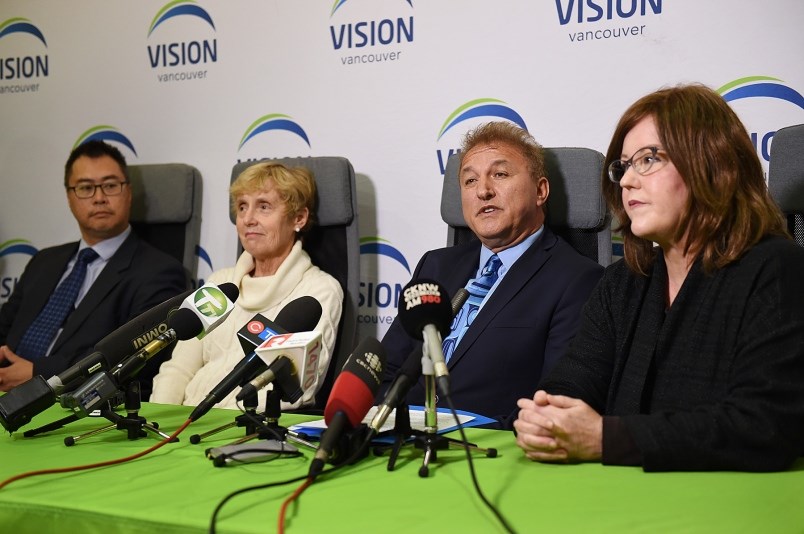Former Vancouver School Board (VSB) chair Patti Bacchus has been denied access to witness records of the high-profile workplace investigations of allegations she and others bullied district executives.
Bacchus sought interview records of the six district executives – who claimed harassment by some of the board’s trustees, including Bacchus, in 2016 – in an attempt to prove her still-unproven claim the provincial government conspired in the matter.
“To me those people were really pawns in the whole process,” said Bacchus Tuesday, in response to the September 22 ruling by the Office of the Information and Privacy Commissioner.
The ruling upheld the principle of protecting the mental health of employees enshrined in B.C.’s privacy laws.
“The applicant (Bacchus) argues that the ‘feelings’ and ‘emotions’ of the witnesses
are not relevant. I reject this argument,” stated adjudicator Layli Antinuk.
Noting two separate, independent investigations (one by an employment law firm and another by WorkSafeBC) found that bullying and harassment had occurred at the VSB, Antinuk concluded the board “has provided sufficient evidence to establish a threat to the mental health of the witnesses that goes well beyond the merely possible or speculative.
“In my view, the School Board has a reasonable expectation that disclosing the interview notes could threaten the mental health of the witnesses by forcing them to re-live the bullying and harassment they experienced in the workplace and causing them to intensely fear retribution.”
The issue was part of, or became part of, a high-profile political saga.
Prior to the mental health claims by the executives, and subsequent investigations, then Education Minister Mike Bernier fired Bacchus and the entire board of trustees in October 2016, for failing to balance the district’s budget on time. The NDP-aligned Bacchus jousted politically with the BC Liberal minister on funding issues, as delays to seismically upgrade schools persisted and the VSB closed schools
“If they were going to fire us, they had to have some sort of cloud over us to justify it because of the political support we had for the position we were in,” said Bacchus, adding she “had always been interested in whether, or how politically engineered the whole thing was.”
Bacchus said what was determined to be bullying was tantamount to an elected official being critical of bureaucrats and policies.
“I wanted everything about this investigation to be public because I think the more you can see, there really isn’t much there in terms of what took place; and not just by me, but by the entire board, plus the employee groups and parent groups were implicated in this interesting report. You can see there’s really not much there,” said Bacchus.
“Nobody was threatened; nobody was rude; nobody yelled at anybody. It was nothing like anything I would think bullying would be,” said Bacchus.
Antinuk also noted Bacchus’ public attitude toward the witness’ claim. Noting her recent columns in media and commentary on Twitter, Bacchus referred to the executives as the “sick leave six” who have “delicate feelings.”
Yet, Antinuk ruled, “In my view, the mental impacts involved in this case rise above mere inconvenience, upset or unpleasantness to the level of serious mental distress or anguish.”
Antinuk also believed the six executives felt Bacchus was vengeful. However, Bacchus said she had no interest in retribution against the six.
Furthermore, the OIPC ruling noted witnesses were assured their testimony would remain private. Antinuk noted:
“Section 19(1)(a) protects against threats to an individual’s mental health. Previous orders have found that threats to mental health do not include merely feeling upset, inconvenienced, or unpleasant – rather, s. 19(1)(a) requires serious mental distress or anguish. Distress means severe trouble, anxiety or sorrow; anguish means severe misery or mental suffering.”
Bacchus suggested some irony in the saga, noting her emails were accessed by staff to prove any bullying.
Vancouver superintendent Scott Robinson took a leave from the VSB in summer 2016. He was hired as Richmond’s superintendent in 2019, after replacing Sherry Elwood, who defended Robinson in 2016 as then president of the B.C. School Superintendents Association by writing to Bernier about “toxicity” at the VSB workplace.



